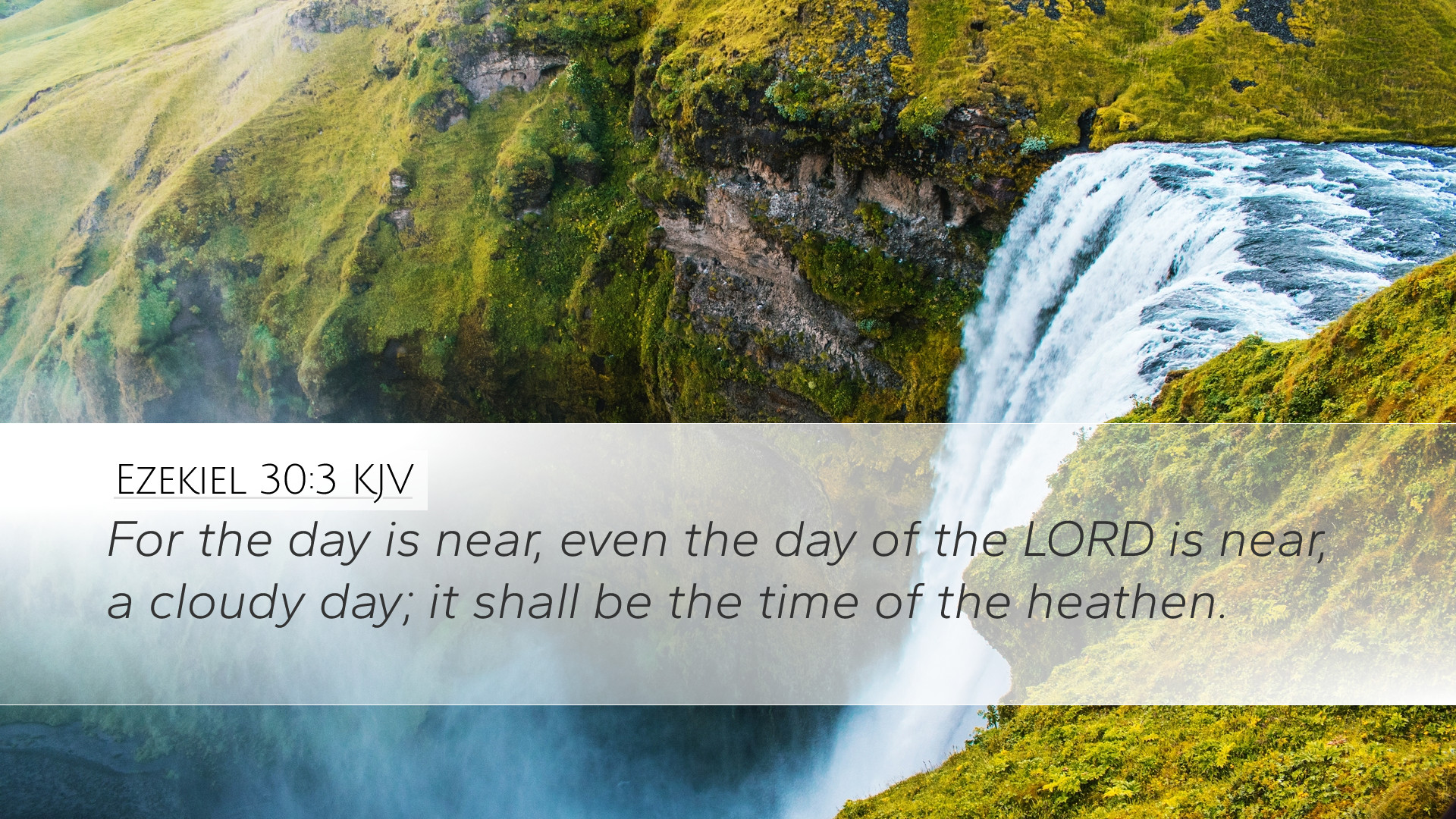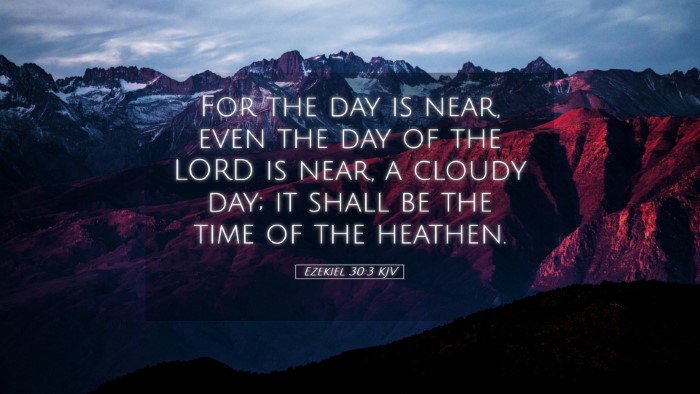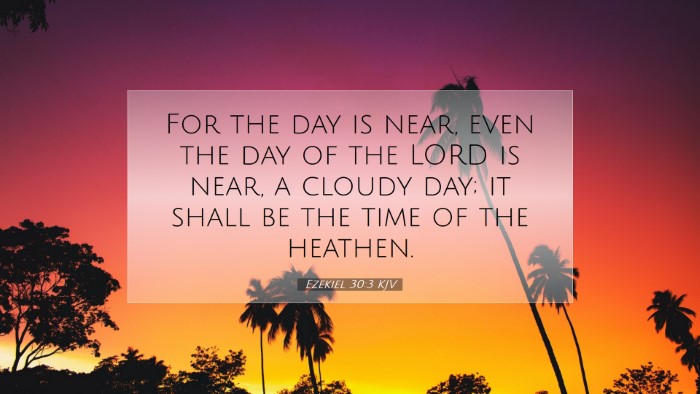Ezekiel 30:3 - Commentary Summary
Verse Context: Ezekiel 30:3 states, "For the day is near, the day of the Lord is near; it will be a day of clouds, a time of doom for the nations." This verse marks a significant moment in the Book of Ezekiel, as it emphasizes the approaching judgment of God upon the nations, particularly Egypt, which serves as a central focus in this chapter.
Overview of Public Domain Commentaries
This commentary synthesizes insights from renowned public domain commentaries including those of Matthew Henry, Albert Barnes, and Adam Clarke. Each of these scholars contributes a unique perspective, highlighting theological, historical, and practical implications relevant to pastors, students, theologians, and biblical scholars.
Theological Significance
Day of the Lord: The phrase "day of the Lord" is pivotal in biblical prophecy, often associated with divine judgment and intervention in human affairs. According to Matthew Henry, this term encapsulates not just a specific event, but an era characterized by God’s active involvement, serving as a somber reminder of God's sovereignty over all nations.
- Judgment on Nations: Albert Barnes notes that the prophecy targets not only Egypt but also other nations that have opposed Israel and have engaged in idolatry. The "day" heralds inevitable consequences for those who defy God's will.
- Clouds as Symbolism: Adam Clarke elaborates that clouds often signify divine presence and impending judgment in prophetic literature, marking a transition from grace to justice.
Historical Context
The historical backdrop for Ezekiel's prophecy is critical for understanding its message. During this period, the nation of Judah was facing threats from Babylon and other regional powers. Matthew Henry emphasizes that understanding the geopolitical climate of Ezekiel's time enriches our comprehension of the urgency communicated in this verse.
Decline of Egypt: Egypt, once a powerful player on the world stage, was prophesied to face judgment. Albert Barnes details how Ezekiel was warning against the false security that Egypt offered to Israel, making it clear that alliances with worldly powers would not be a safeguard against God’s judgment.
Practical Implications for Modern Readers
The application of Ezekiel 30:3 transcends the historical context into contemporary faith practice. The emphasis on divine judgment serves as a pertinent reminder for today’s church to remain vigilant against idolatry and complacency.
- Call to Repentance: Matthew Henry stresses the necessity of repentance. The forecast of doom should evoke a sense of urgency among believers to turn away from sin.
- Assurance of God’s Sovereignty: Believers can take comfort in knowing that despite the chaos of nations and the rise and fall of empires, God remains sovereign over all, as highlighted by Adam Clarke.
The Role of Prophetic Revelation
Prophecies such as Ezekiel 30:3 serve to instruct and warn the faithful. According to Albert Barnes, these prophecies are not only historical accounts but also serve as moral and spiritual exhortations for present-day believers to heed God's warnings and seek His guidance.
Conclusion
The essence of Ezekiel 30:3 is a poignant reminder of the reality of divine judgment and the call to awareness and readiness amongst God’s people. The insights gathered from Matthew Henry, Albert Barnes, and Adam Clarke elucidate the profound implications for understanding God’s nature, the seriousness of our spiritual state, and the imperative of living in alignment with divine truth.
By reflecting on this verse, pastors, students, and theologians are encouraged to engage deeply with the text, allowing its truths to transform their understanding and practices in faith.


